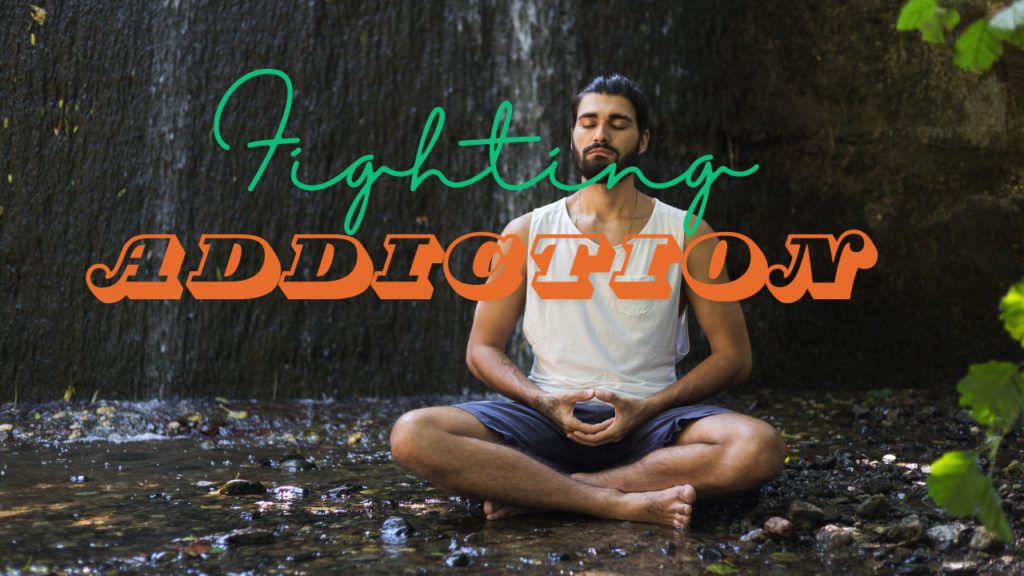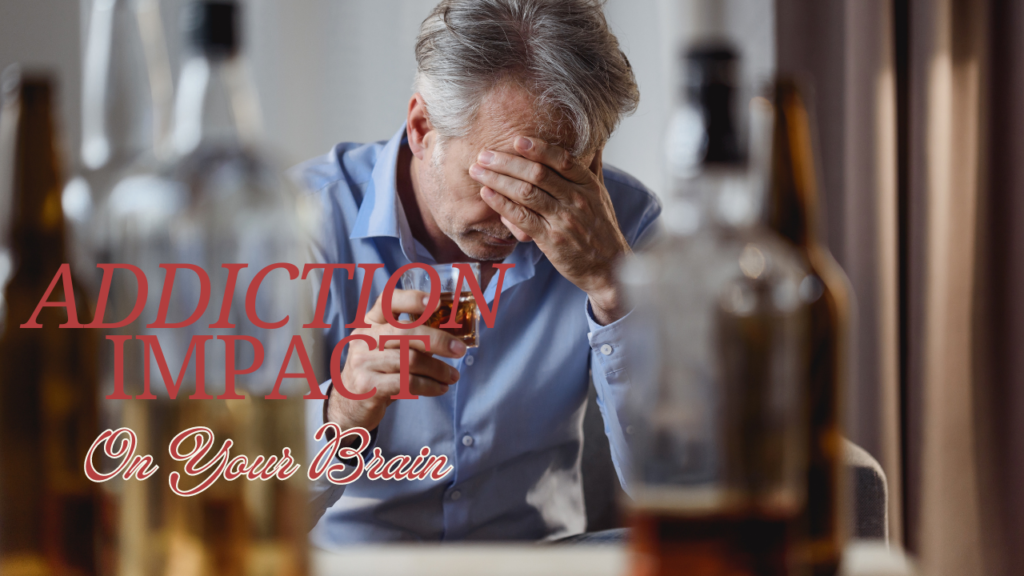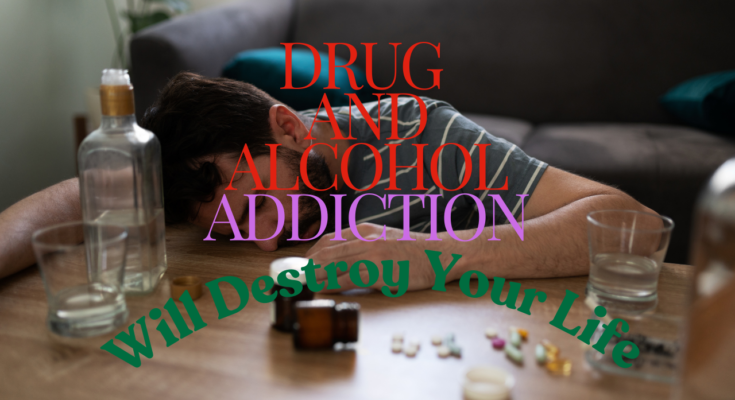Recovery from drug and alcohol misuse is a lifelong journey. It’s more than just ceasing the use of harmful substances; it’s about building a healthy lifestyle and establishing positive habits. Understanding the long-term effects of misuse is crucial for recovery, as it can lead to significant damage to the brain and vital organs. However, with appropriate assistance and strategies, individuals can improve their health and regain control of their lives. The content of this article is derived from reputable sources. Its intent is not to provide professional advice but to increase awareness of the issues our communities face due to drug addiction. It serves to alert those who are not addicted to the health risks of drug use and to direct those battling addiction to the support that is available.

Key Takeaways
- Addiction can have lasting effects on various bodily systems, but recovery is possible with the right approach.
- Physical activity is essential, with recommendations of at least 150 minutes of moderate or 75 minutes of intense exercise per week1.
- Balanced nutrition, proper hydration, and addressing nutritional deficiencies are crucial for a healthy recovery2.
- Seeking support from counselors, support groups, and engaging in activities like meditation can aid in the recovery process3.
- Rebuilding relationships and addressing mental health challenges are vital components of a successful recovery journey.
Understanding the Effects of Addiction on the Brain
 Addiction is a complex brain disease that changes its structure and function. The brain, with billions of neurons forming networks, is affected by addiction’s chronic use4. This interference causes abnormal messages to spread. It affects motivation, stress, decisions, and control as areas like the basal ganglia, amygdala, and cortex are hit4.
Addiction is a complex brain disease that changes its structure and function. The brain, with billions of neurons forming networks, is affected by addiction’s chronic use4. This interference causes abnormal messages to spread. It affects motivation, stress, decisions, and control as areas like the basal ganglia, amygdala, and cortex are hit4.
The Brain Stem and Cerebral Cortex
The brain stem controls vital functions like heart rate, affected by drugs such as opioids4. The cerebral cortex, crucial for problem-solving and making choices, is also harmed by addiction4.
Substance Use Disrupts Neurotransmitter Communication
Drugs can cause neurotransmitter surges, especially dopamine involved in pleasure4. This alteration makes repeating drug use easier over time4. Also, cues related to drugs can spark a desire, affecting drug-free people too4. Drug use can make natural pleasure sources less appealing than the drug itself4.
The impact of addiction on the brain changes based on the drugs used, how often, and addiction’s stage5. Cocaine, for example, leads to intense euphoria by flooding the brain with dopamine5. Addiction can eventually cause brain harm or death5.
Stopping drug use gives the brain a chance to heal, a tough but possible process4. Therapies that improve brain function, like biofeedback, help in addiction recovery5.
Almost 23 million Americans battle alcohol or drug addiction, showing it’s a big issue6. Knowing how deeply addiction affects the brain is vital for aiding recovery465.
Repairing Liver Damage from Substance Abuse
The liver is your body’s biggest gland, weighing about three pounds7. Its main job is to get rid of harmful substances from the body, like those from drugs and alcohol. Yet, if you abuse these substances for a long time, it can cause serious liver issues. These may include blood clots, cirrhosis, hepatitis, and even total liver failure7.
Consuming drugs and drinking too much alcohol can spike your dopamine levels. This disrupts how your liver normally works7. Thankfully, the liver can heal itself to some extent if the substance use was not regular. But if someone is addicted for a long time, more liver cells might die. This makes it harder for the liver to heal7.
Drug-Induced Liver Diseases
Damage to the liver from substances can lead to several diseases. These might involve blood clots in the liver’s veins, or more commonly-known issues like cirrhosis and hepatitis7. Signs that your liver might be damaged include feeling weak, tired, or having belly pain. You may also see yellowing of the skin, feel sick, and vomit7. If substance abuse continues, it could even cause your kidneys to fail. This is very dangerous and can be life-threatening7.
| Liver Disease | Description | Risk Factors |
|---|---|---|
| Alcoholic Fatty Liver Disease (AFLD) | The initial liver disease stage, where fat collects in the liver. | Drinking too much for over two weeks8. |
| Alcoholic Hepatitis | Liver inflammation that can lead to scarring, which is usually not reversible. | Caused by poor nutrition, weak immune system, certain viruses, too much Tylenol, being over 55, female, or overweight8. |
| Alcoholic Cirrhosis | Advanced liver scarring that affects its function. | Develops due to heavy and prolonged alcohol consumption9. |
To avoid lasting liver damage and danger, quitting substances now is vital7. Luckily, your liver is pretty good at fixing itself. After you stop drinking, it can get back a lot of its health and size9.
“Chronic, heavy alcohol consumption disrupts normal organ function and causes structural damage in virtually every tissue of the body.”9
For people with alcoholic liver problems, not drinking alcohol is the top solution9. Making changes in how you live can help with early liver issues. This might mean eating better, losing weight if needed, and exercising8. When it comes to alcoholic cirrhosis, stopping alcohol is key. It also helps to take anti-inflammatory drugs and eat a lot of protein and calories879.
Kidney Health and Substance Misuse
The kidneys are vital for our health. They filter our blood and remove waste. Substance abuse, though, can harm them, leading to severe health issues10. The CDC states that 6 million adults have kidney disease10. Shockingly, up to 81% of cases where muscles break down, hurting the kidneys, are because of drugs and alcohol, with 50% of those cases resulting in kidney failure10.
Substance abuse affects our kidneys directly and indirectly11. Drugs like cocaine, heroin, and inhalants leave the body through the kidneys, which can harm them11. Risk factors such as aging, high blood pressure, and diabetes can also hurt kidney health11. When kidneys aren’t working well, drugs can be more toxic11.
The damage drugs can do to kidneys is well-known11. Heroin can destroy the kidneys, causing severe issues11. Cocaine often leads to sudden kidney failure, affecting a third of its users in emergency rooms11. MDMA and inhalants are also harmful, along with alcohol which changes the structure and function of kidneys11.
If substance misuse stops, the kidneys can heal10. But, addressing addiction is key to prevent worse kidney damage10. Learning about how substances hurt our kidneys can help. This knowledge might push individuals to seek help and improve health10.
The YouTube video created by Yale Medicine provides a comprehensive explanation of how an addicted brain functions, with the link to the video found in the reference section.
“Substance abuse is a major risk factor for kidney disease, and it’s important to address it to prevent long-term damage.”
Protecting Your Heart After Addiction
Whether it’s alcohol, drugs, or substances, addiction can harm your heart12. Drinking heavily leads to more heart disease risk12. Having six or more drinks in one go can spike your heart attack risk the day after12. Heavy drinkers have a higher stroke death rate than non-drinkers12.
Substance misuse has other heart risks too12. Using cocaine for a long time can damage your heart’s left side, possibly causing heart failure or valve issues12. Misusing stimulants like Adderall speeds up your heart, narrows your blood vessels, and ups your heart attack risk12. Since opioids can cause heart attacks, strokes, and heart rhythm problems, misusing them by injecting can lead to a heart infection12.
Signs of Heart Problems During Recovery
It’s key to watch out for heart issues while recovering12. Signs may include up-and-down blood pressure, heart rate changes, chronic headaches, stomach pain, and body temperature shifts12. Dealing with these problems quickly and staying on top of your heart health is vital. It helps keep you safer from dangerous heart issues12.
Getting your heart healthy again takes effort and time after addiction13. It’s possible to change with the right help and support13. Counseling and therapy play a big role in treating addiction. Medications can ease withdrawal and handle mental health issues13. Staying connected through support groups, either in person or online, reduces the chance of falling back into addiction13.
“Addiction and mental health disorders often co-occur, complicating treatment and exacerbating symptoms.”14
Dealing with addiction and mental health together boosts your recovery chances14. Having positive people around you helps a lot in recovery, especially those who support you to stay sober13. Focusing on your heart as part of your recovery plan helps you take charge of your health again. This way, you lower the risks from addiction on your heart12.
Restoring Respiratory Function
The respiratory system is key to our health, working together with the heart to give our body oxygen15. Yet, drug abuse can harm this system, causing many lung diseases. These issues can reduce how well our lungs function and hurt our health.
Respiratory Illnesses Tied to Substance Use
Taking drugs in through the nose or mouth, like cocaine and marijuana, can really hurt our lungs16. This can lead to problems like asthma, chronic bronchitis, and even lung cancer. With some conditions, quitting drugs might help, but others, like emphysema, need medical care fast to avoid dangerous outcomes15.
Drinking too much affects our breathing too16. People with alcohol use disorders get pneumonia more often and are at a higher risk of dying from it16. They also have a higher chance of getting a serious lung problem called ARDS. Mixing alcohol and opioids can be deadly, causing breathing problems and even coma or death16.
Recovering our lung health is crucial, making us feel better and avoiding dangerous lung diseases15. Quitting smoking, eating well, and exercising regularly can really help with this. With these good habits, people in recovery can make great progress in improving lung health.
“Quitting smoking is the most effective measure to minimize and heal lung damage.”17
Taking care of our lungs during recovery is vital. It not only makes life better now but also cuts the risk of severe lung diseases in the future.
Healing the Digestive System
Addiction can really hurt the digestive system. It can cause many gut issues18. People fighting addiction might deal with not feeling hungry, making bad food choices, low blood sugar, harm to organs, and gut disorders18. Also, too much alcohol can lead to not getting enough important nutrients like folic acid, Vitamin B6, and Thiamine, which causes anemia and other serious problems18.
Signs of Gastrointestinal Problems
After starting recovery, people may face digestive system problems. These might be things like always being dehydrated, diarrhea or constipation, seeing blood in stool, stomach pains, and feeling sick18. It’s crucial to tackle these issues and make your digestive system healthy again. This is key for feeling well and avoiding more health troubles.
If you misuse substances, you might not eat right. This could mean eating fewer meals, skipping them, or forgetting to have fruits and veggies18. Using stimulants could make you not want to eat, causing health issues like heart problems and losing muscle18. Even if you use marijuana and get the munchies, eating unhealthy could lead to problems like diabetes and heart disease18.
| Nutrient | Importance |
|---|---|
| Vitamins (A, D, E, K, B-complex, C) | Support immunity, bone health, skin health, and brain function18 |
| Minerals (Calcium, Magnesium, Potassium, Sodium) | Aid in hydration, bone health, and blood clotting18 |
| Protein (Amino Acids) | Crucial for muscle building and cell function18 |
| Healthy Fats | Necessary for hormone production, brain function, and immune health18 |
| Carbohydrates | Essential for central nervous system and brain function18 |
| Water | Plays essential roles in brain function, toxin removal, and nutrient transfer18 |
Eating a balanced, nutrient-filled diet is vital for fixing your digestive system during recovery18. It helps to focus on what specific nutrients your body needs after substance abuse. This way, you can get back to good physical and mental health.
“Nutritional therapy can help the gut recover from poor diet, mental health issues, or drug use. It aids in better nutrient absorption and is a must for a complete dietary health plan.”19
To heal, you might face die-off symptoms like feeling tired, foggy brain, gut issues, mild fever, and muscle pains20. Eating immune-boosting foods such as oranges, garlic, and spinach can make a big difference. But you should also look into if you have any sensitivities to wheat or dairy. Plus, taking collagen can help keep your gut strong and prevent leaks20.
Focusing on your gut’s health and meeting your special recovery challenges is key181920. This approach can help you get back to feeling good and stay on the path of recovery.
HOW TO IMPROVE YOUR HEALTH IF YOU BECOME ADICTED
To recover from addiction’s physical effects, a broad method is needed. It tackles the physical parts and changes in lifestyle. This approach helps a lot in boosting overall health and cutting the danger of serious issues from drug or alcohol abuse21.
Eating at regular times and choosing a variety of foods is key. It replaces the nutrients lost during addiction. Drinking plenty of water is also crucial to avoid dehydration caused by substance use21.
Supplements play a big role in the healing process. They support the body while it gets back on track. Moving more and exercising helps gain strength and improves general health21. Plus, taking time to rest is just as important for the body’s recovery21.
Cutting down on caffeine and aiming to quit smoking helps too21. Finding support from professionals and joining groups makes change easier. They help keep you on track and encourage lasting health benefits21.
Working on your health after addiction requires some effort. But with these steps, you’re setting yourself up for a bright and healthy future21.
“Addiction is referred to as a long-lasting and complex brain disease by NIH-funded scientists.”22
Addiction can harm brain areas that ensure our survival is a key finding. The prefrontal cortex gets damaged through drug use, affecting our ability to make good choices. This often leads to more drug abuse22. For teens, the risk is higher because their brains aren’t fully developed and their pleasure centers are overactive22.
There are medicines and therapies that work well for certain addictions. And new methods, like mindfulness and brain stimulation, are being tested as additions to the usual treatments23.
Understanding the brain’s role in addiction and taking a full-scope recovery strategy is vital. It helps individuals make important advances in their health and life, post-addiction22.
Managing Stress for Sustained Recovery
Stress and addiction are tightly linked. Those with substance use disorders often have more stress hormones. This is compared to people without addiction issues24. High stress levels can cause anxiety and increase addiction risks. It changes the brain’s dopamine, serotonin, and melatonin levels25. Life troubles plus poor coping skills raise the odds of addiction25.
Being addicted itself changes how the brain handles stress. It can make the stress response overactive, even after detox24. This overreacting to stress is a big risk for relapsing. It’s vital for recovering addicts to learn good stress management. This helps to prevent relapse and stay sober long-term.
- Doing regular exercise can make you happier by releasing endorphins24. Just being outside for 30 minutes can also reduce your stress and make you feel better24.
- Meditation and mindfulness can lower stress and anxiety, making it easier to handle cravings and triggers2426.
- Being thankful, like writing in a gratitude journal, is known to cut down stress and boost well-being24.
- Therapies like Cognitive Behavioral Therapy (CBT) help people change how they act in stress. This makes it easier to avoid triggers26.
- Joining support groups, such as 12-Step programs, lowers stress and helps prevent relapse26.
It’s essential to include stress management methods in addiction recovery. Teaching effective coping strategies helps individuals deal with recovery challenges. This leads to a healthy, balanced life26.
| Stress Management Techniques | Benefits |
|---|---|
| Exercise | Releases endorphins, reduces stress, and improves mood |
| Meditation and Mindfulness | Decreases stress and anxiety levels, helps manage cravings and triggers |
| Gratitude Practices | Reduces stress and promotes overall well-being |
| Cognitive Behavioral Therapy (CBT) | Helps modify behavioral responses to stress and avoid substance use triggers |
| Peer Support Groups (e.g., 12-Step Programs) | Decreases perceived stress levels and improves the ability to avoid relapse |
By teaching several stress managing skills, people can get better at dealing with stress. This helps them avoid returning to addiction and maintain their recovery26.
Rebuilding Relationships and Support Networks
Addiction can really hurt personal relationships. It often breaks trust and causes emotional distance. This affects the bond with loved ones27. Yet, fixing these relationships is vital for recovery. Having a strong support system greatly helps in staying sober28.
Group therapy and 12-step programs are great for this. They give not just support but also a clear path. People can then apologize, improve how they communicate, and earn back trust28. Group therapy, in particular, is better for those overcoming addiction. The shared experience helps them feel they belong and are understood more than in one-on-one sessions29.
Importance of Group Therapy and 12-Step Programs
Programs like NA and AA teach a 12-step method. This includes facing addiction, saying sorry, and finding a support system27. They’re proven to work. Participants in these groups, as research shows, are more likely to stay sober and function better in society27.
Support isn’t just for the addicted but also for their families. Groups like Nar-Anon help them deal with their feelings and learn better ways to cope28. Improved communication and trust then benefit the whole family28.
Healing relationships during recovery is hard but key. Active involvement in these programs can teach the necessary skills. It also helps in building a network that supports staying sober28.

“Relationships in active addiction may feel unpredictable, lonely, and heartbreaking. Repairing relationships is a crucial aspect of 12-step programs and part of the recovery pillars outlined by SAMHSA.”28
In addiction recovery, social support is huge27. By fixing relationships and forming a strong network, recovery’s success chances increase. This also betters one’s life overall27.
Incorporating Exercise into Your Recovery
Adding exercise into recovery can be very helpful. Recent studies show that being active can help a lot. It reduces the chance of heart problems and diabetes. It also helps people use drugs less or not at all30.
Exercise is great for the mind and body in recovery. It makes you feel good by releasing endorphins. This makes stress go down and mood go up. Plus, it makes the brain work better31.
- Being active means people might use drugs less, even if they used to do it a lot. This includes drugs like opioids, marijuana, or cocaine30.
- Working out with others in a class or sports league helps build new friends. These new friends don’t use drugs and you support each other30.
- Reaching your exercise goals and taking care of yourself makes you feel better about yourself. This is big for recovery31.
To make exercise work in recovery, personal plans with experts are important31. Working out makes you stronger inside and out, improving chances of staying sober32.
“Exercise changes both the body and mind. Adding it to your recovery plan can make a big difference in staying sober.” – Dr. Sarah Thompson, Clinical Psychologist
Making exercise a daily habit is crucial for staying healthy in recovery. With help, you can overcome excuses like being too busy or not feeling up to it. Exercises that are fun and doable can fit into your life for the long term31.
Using fitness in treatment can make recovery more likely to succeed32. We’re learning more about this every day, showing exercise’s important role in healing in and out. It’s a powerful part of getting better from addiction.
The Role of Meditation and Spirituality
Recovering from addiction is complex, and many have seen the benefits of meditation and spirituality33. Meditation teaches focusing on the now. It aids in handling tough emotions without turning to drugs or alcohol33. Research has found that meditative practices lower drug and alcohol use. They also help deal with cravings and prevent relapses33.
Many in recovery find spirituality vital. They might join religious activities, serve their community, or pray daily34. Programs like Alcoholics Anonymous rely on spiritual ideas for healing, even though they aren’t specifically religious34. It’s helpful to connect with faith groups for extra guidance in recovery efforts35. These groups can offer strong support. They also suggest that meditation, how often it’s done, and the level of support from one’s recovery community are key for successful recovery35.
Pairing mindfulness, meditation, and spiritual activities with traditional therapies boosts recovery success33. Recent research supports meditation’s usefulness in treating various health issues and addictions33. Meditating can notably lessen chronic pain, benefiting sleep and mood33. It also helps cancer patients manage pain and emotional distress33.
The impact of spirituality and meditation on recovery is growing. However, healthcare professionals need to be careful. They should guide people on how to use spiritual practices in positive ways, not as escape routes34. A well-rounded approach, incorporating spiritual beliefs with proven therapies, is best for recovery34.
“Meditation is not about getting anywhere else, but about being where you already are.” – Jon Kabat-Zinn
Conclusion
Overcoming the health issues associated with addiction requires a comprehensive approach to recovery. Addressing problems in the brain, liver, kidneys, heart, lungs, and stomach can facilitate improvement during recovery. It’s important to maintain a nutritious diet, stay hydrated, and engage in regular exercise. Managing stress, cultivating supportive friendships, and incorporating mindfulness and spiritual practices into daily life are also crucial. With perseverance, hard work, and the proper resources, anyone can regain their health and find greater enjoyment in life post-addiction.
Statistics reveal the profound impact of addiction on individuals, their families, and society. However, research indicates that mitigating the adverse effects of addiction is achievable through appropriate prevention and treatment strategies. By adopting a comprehensive set of approaches for better health post-addiction, individuals can embark on a journey to sustained wellness after cessation.
Recovery may be challenging, but the rewards of the journey, with the necessary support and assistance, are invaluable. Through holistic healing, individuals can restore their health and reclaim their lives, paving the way to a more joyful and promising future.
FAQ
What are the main areas of the brain affected by chronic substance use?
Chronic substance use impacts three key brain areas. It affects the brain stem that controls basic life functions. It changes the cerebral cortex, affecting thinking and judgment. Lastly, it influences the limbic system, responsible for feelings of pleasure and reward.
How does substance use disrupt the brain’s normal communication process?
Substance use messes up how the brain sends messages. It changes how chemicals like dopamine work. This can harm how we think and learn, and even damage the brain forever.
What are the effects of prolonged substance abuse on the liver?
Abusing substances for a long time can badly hurt the liver. It can cause diseases like cirrhosis and hepatitis. Even though the liver can heal, the harm is more difficult to fix the longer the abuse continues.
How can substance use affect the kidneys?
Drugs and alcohol make the kidneys work harder. This can lead to kidney failure, which might not get better if the abuse goes on.
What are some of the heart-related problems caused by chronic substance use?
Using drugs for a long time can hurt the heart. It can cause problems like odd heartbeats and heart attacks. Injecting drugs can lead to even worse issues, like infected veins or heart valves.
How can substance use damage the respiratory system?
Snorting or smoking drugs can harm the lungs. It can cause asthma, bronchitis, or even lung cancer. This can lead to serious breathing problems.
What are some common signs of gastrointestinal problems during addiction recovery?
After drug use, the stomach can show signs of trouble. This might include dehydration, tummy pain, or problems with bathroom habits. If you see blood in your stool or feel like throwing up, it’s a sign something might be wrong.
What are some key steps to recovering from the physical effects of addiction?
To get better physically after addiction, there are important steps to take. Stick to a healthy diet. Always stay hydrated. Take vitamins. Exercise regularly. Get enough sleep. Cut down on caffeine and smoking. Lastly, connect with professionals and support groups for help.
How can stress and trauma impact addiction recovery?
Bad experiences and mental health problems can make addiction recovery harder. They might lead to using drugs again. Finding healthy ways to deal with stress is important. It helps keep out of danger even long after stopping drugs.
Why is rebuilding close connections with family and friends important for successful addiction recovery?
Getting close again with loved ones is key in addiction recovery. It helps make up for any harm the addiction did to these relationships. Group support and therapy also offer a big help.
How can exercise benefit individuals in addiction recovery?
Exercising helps the brain make chemicals that make you feel good. This can lower stress and make you happier. Working out with others can also build good friendships and a life outside of addiction.
What role can meditation and spiritual practices play in addiction recovery?
Meditation and spirituality can help in overcoming addiction. They teach us to face hard emotions. For many, faith or religious practices are key in staying clean. This might include helping others or praying daily.
Disclaimer:
The topics discussed in this blog are for educational and informational purposes only. They do not constitute formal advice to act upon in any way. Readers should consult with a qualified professional before making any decisions or taking any actions based on the information provided. The author and the blog are not liable for any consequences resulting from the use or reliance on the information presented.
Source Links
- https://www.webmd.com/mental-health/addiction/exercise-help-addiction-recovery – Exercise: How It Can Help With Addiction Recovery
- https://medlineplus.gov/ency/article/002149.htm – Substance use recovery and diet: MedlinePlus Medical Encyclopedia
- https://www.webmd.com/mental-health/addiction/drug-abuse-recovery-maintaining-hope-and-health – Maintaining Drug Abuse Recovery
- https://nida.nih.gov/publications/drugs-brains-behavior-science-addiction/drugs-brain – Drugs and the Brain | National Institute on Drug Abuse
- https://www.addictioncenter.com/addiction/addiction-brain/ – Addiction And The Brain
- https://www.helpguide.org/harvard/how-addiction-hijacks-the-brain.htm – Understanding Addiction: How Addiction Hijacks the Brain – HelpGuide.org
- https://www.gatewayfoundation.org/addiction-blog/body-damage-from-substance-use/ – How Drugs & Alcohol Affect Your Body – Gateway Foundation
- https://www.therecoveryvillage.com/alcohol-abuse/repair-liver-alcohol-use/ – How to Cleanse Your Liver from Alcohol Use | What You Should Know
- https://arcr.niaaa.nih.gov/volume/41/1/natural-recovery-liver-and-other-organs-after-chronic-alcohol-use – Natural Recovery by the Liver and Other Organs After Chronic Alcohol Use
- https://americanaddictioncenters.org/health-complications-addiction/renal-system – Substance Misuse and the Kidneys: Effects of Drugs on the Kidneys
- https://drugabuse.com/addiction/health-issues/kidneys/ – Effect of Drugs on the Kidneys | Kidney Damage & Failure
- https://americanaddictioncenters.org/health-complications-addiction/substance-abuse-heart-disease – Substance Abuse & Heart Damage, Disease, Complications
- https://www.helpguide.org/articles/addictions/overcoming-drug-addiction.htm – Overcoming Drug Addiction – HelpGuide.org
- https://americanaddictioncenters.org/sobriety-guide/coping-mechanism – Addiction as a Coping Mechanism and Healthy Alternatives
- https://www.healthline.com/health/quit-smoking/how-to-clean-lungs-after-quitting-smoking – Tips for How to Clean Your Lungs after Quitting Smoking
- https://americanaddictioncenters.org/health-complications-addiction/respiratory-system – How Do Drugs and Alcohol Affect the Respiratory System?
- https://www.lung.org/blog/can-you-detox-your-lungs – Can you detox your lungs?
- https://www.gatewayfoundation.org/addiction-blog/nutrition-for-substance-abuse-recovery/ – Nutrition Guide For Addiction Recovery – Gateway Foundation
- https://www.hazeldenbettyford.org/articles/diet-and-mental-health – Diet and Rehabilitation: Nutrition’s Impact on Addiction Recovery
- https://www.psychologytoday.com/us/blog/click-here-for-happiness/201906/heal-the-gut-17-gut-healing-strategies-to-start-today – Heal The Gut: 17 Gut-Healing Strategies to Start Today
- https://my.clevelandclinic.org/health/diseases/6407-addiction – Addiction
- https://newsinhealth.nih.gov/2015/10/biology-addiction – Biology of Addiction
- https://nida.nih.gov/publications/drugs-brains-behavior-science-addiction/treatment-recovery – Treatment and Recovery | National Institute on Drug Abuse
- https://englishmountain.com/blog/nine-ways-manage-stress-recovery/ – How to Manage Stress in Addiction Recovery: 9 Essential Tips
- https://harmonyridgerecovery.com/stress-addiction-recovery/ – Managing Stress and Addiction Recovery – Harmony Ridge Recovery Center
- https://americanaddictioncenters.org/adult-addiction-treatment-programs/stress-and-addiction – The Treatment for Stress & Addiction In a Recovery Center
- https://americanaddictioncenters.org/addiction-recovery/healthy-relationships – Building Healthy Relationships in Recovery
- https://psychcentral.com/addictions/rebuilding-relationships-in-early-recovery – Repairing Relationships After Substance Use Disorder
- https://journeypureriver.com/repair-relationships-broken-by-addiction/ – Repairing Relationships Broken by Addiction – JourneyPure At The River
- https://www.gatewayfoundation.org/addiction-blog/benefits-exercise-for-recovery/ – How Exercise Benefits Addiction Recovery -Gateway Foundation
- https://recoveredonpurpose.org/exercise-and-addiction-recovery/ – Exercise and Addiction Recovery | Boost Your Mental Health
- https://www.washingtonpost.com/wellness/2023/04/26/addiction-recovery-exercise-treatment/ – Exercises like jogging or weight training may help addiction recovery
- https://www.therecoveryvillage.com/drug-addiction/meditation/ – Meditation for Addiction: Does it Help? The Benefits of Meditation
- https://www.leorabh.com/blog/the-role-of-religion-and-spirituality-in-addiction-treatment – The Role Of Religion and Spirituality in Addiction Treatment
- https://www.ncbi.nlm.nih.gov/pmc/articles/PMC9992926/ – The role of mindfulness, meditation, and peer support in recovery capital among Recovery Dharma members
- https://www.ncbi.nlm.nih.gov/books/NBK424861/ – VISION FOR THE FUTURE: A PUBLIC HEALTH APPROACH – Facing Addiction in America
- https://www.samhsa.gov/sites/default/files/programs_campaigns/02._webcast_2_resources.pdf – PDF
- https://www.medicalnewstoday.com/articles/323465 – Addiction: Definition, symptoms, withdrawal, and treatment
- https://www.youtube.com/watch?v=RZ5LH634W8s/ – How an Addicted Brain Works




